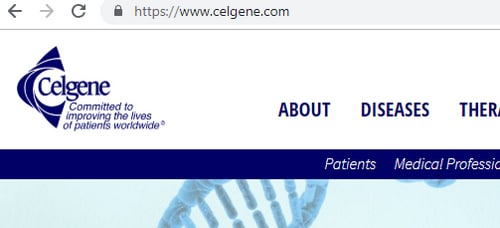Company hires new counsel after being found guilty of reverse domain name hijacking.

In February of this year, pharmaceutical company Celgene (NASDAQ: CELG) was found to have engaged in reverse domain name hijacking in its attempt to get the domain name CellGene.com. The World Intellectual Property Organization panel found that Celgene attempted to mislead the panel.
Now the company is using new counsel at Wiley Rein to try its hand in U.S. courts.
The $66 billion company filed an in rem lawsuit against the domain name in Virginia courts where .com registry Verisign is located.
The lawsuit is for violation of the Anticybersquatting Consumer Protection Act (ACPA) and trademark infringement.
In the suit, Celgene points out that it believes the domain owner is PortMedia, the company that responded in the UDRP for the domain. It states that PortMedia has been found to have engaged in cybersquatting on at least five occasions and has handed over obvious trademark domains in other cases. (One of the examples it gives is for Esty.com — a case in which PortMedia actually won.)
The trademark infringement claim is notable. Even if the ACPA claim fails, Celgene shows screenshots of pay-per-click landers that had ads related to the pharmaceutical company.






Wiley Rein used to be the good guys, helped people to recover stolen domains. Now they represent a reverse hijacker in court?? Shameful.
66 billion and they can’t work out a purchase? That’s ridiculous.
They were too busy spending that money on trying to buy a Senate seat.
When one Googles “cell gene” or “cellgene” there are millions of research documents returned by that generic term.* If CellGene.com becomes the property of this company, researchers and cancer patients will be forced to wade through dozens of Google return pages before they reach even the earliest flickers of the content they seek! How embarrassingly crass.
Self-serving corporate attorneys rail and howl ad nauseam to distort the intent of trademark law, hunting out and bullying weak-minded judges, but the judiciary must hold the line:
“As Professor Landes and Judge Posner famously conclude,
traditional trademark law is “a rationally designed system for
minimizing consumer search costs.” **
Those “consumer search costs” are the reason behind, and the tuning fork for, the “risk of consumer confusion” test. We are US taxpayers and citizens—this is our money from our toil, this is our search time, and these are our laws—we do not work all day to subsidize and ‘prop up’ any one company against others, to the public detriment.
And infringement? There is no “consumer confusion” risk from a page of outlinks. The ‘reasonable’ web surfer does not see dozens of bog-standard blue html links and think that they are looking at the company’s home page. That utterly beggars belief and is a clownish proposition. Companies pay billions to scatter their linkbacks around the web, now we’re to believe it offends this ONE time, when there just happens to be an asset to steal?
Get thee behind us, Satan.
*–https://www.google.com/search?q=cellgene&nfpr=1&sa=X&ved=0ahUKEwiq0cmi39DiAhVIPawKHShkCQUQvgUILigB&biw=1600&bih=848, https://www.google.com/search?biw=1600&bih=848&ei=L9_2XNuHG-q7tgWAyZqoCQ&q=%22cell+gene%22&oq=%22cell+gene%22&gs_l=psy-ab.3..0l7j0i10j0l2.11800.13680..13873…0.0..0.131.1345.0j11……0….1..gws-wiz…….0i71j0i10i67j0i131.HV5JiBlIJOA
**–https://scholarlycommons.law.hofstra.edu/cgi/viewcontent.cgi?article=2433&context=hlr